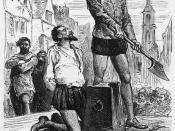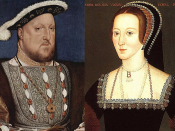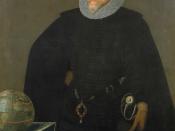ST AUSTELL, ENGLAND Next Wednesday will mark the 450th anniversary of the birth of Elizabeth I, greatest of English rulers, certainly the one who has imposed herself longest upon that living memory of peoples that is history. She was born at Greenwich September 3, 1533, the daughter of Henry III and his Queen, Anne Boleyn, who were both disappointed at the birth of a girl instead of the male heir that they so badly wanted.
But they had done better than they knew. In the circumstances of the time, it was an advantage to have a woman on the throne, directing affairs from several points of view. A King would have been more aggressive, wasting the little country's resources on foreign adventures, as Elizabeth's father, Henry VIII, had done with his unnecessary, extravagant wars in France.
A woman could always say no to that sort of thing, and she was not extravagant.
She put off open war with Spain--inevitable as it was to maintain the independence of the Netherlands and to win a footing in the New World--until she had built up the Navy, to a point where she could confront the Spanish Empire with success.
What were her successes? What did she achieve?
The Europe of her day was driven by an ideological struggle between Reformation, and Counter-Reformation. France and the Netherlands were paralyzed by it, and the civil wars it unleashed, as Germany was in to the next age.
Elizabeth's overriding idea was to maintain the unity of her country and to achieve what we would call today "consensus" under her rule. The Scottish Calvinist John Knox said that she was neither a true Protestant nor a good Papist. Exactly. She did not want divisions of opinion to come out into the open, or lines of dispute over...


